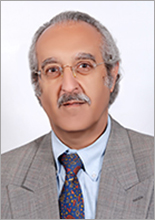Arab Capital Markets: Locked Stocks and Equity for SMEs – Part III
Part III of this six-part series seeks to better understand two interesting features of Arab equity markets. Specifically, why are Arab markets dominated by locked shares and how some Arab governments are using equity markets to foster the development of small and medium enterprises (SMEs).
Free-floats and Locked Stocks
A major feature of developed stock markets is the tradability of listed company shares, allowing prices to reflect company value. Such market liquidity is reflected in small spreads, with large volumes of transactions for each share ensuring the possibility for market participants to execute trades. These features are a reflection of the extent of free float and the presence of institutional investors.
On many Arab exchanges, the proportion of non-locked or free-floating shares per company is limited. As a result, spreads may be wide, price volatility high, and trading not always possible, resulting in prices not reflecting a company’s market value. Free floats appear reasonable in Kuwait, Tunisia, and the United Arab Emirates, but remain small in other countries, especially outside the Gulf Cooperation Council. Thin free floats are often a result of large residual state shareholdings in partially privatized companies or large family shareholdings in companies whose small public share offerings have been prompted notably by tax incentives.[1]
Interestingly, despite limited free-floating shares, virtually all regional capital markets have a significant direct involvement of retail investors, unlike in developed markets where institutional investors have a dominant presence. For example, by November 2013, 46 percent of investors on Egypt’s stock exchange were retail investors.[2] In addition to reducing market volatility, institutional investors are more likely to require disclosure and transparency from investee companies, contributing to improving corporate governance. Accordingly, Arab capital markets could benefit from a larger role of institutional investors and larger floats of shares.
Developing SMEs through Equity Markets
SME development has long been both a priority and challenge for most Arab countries. Interestingly, some countries have tried to facilitate SME development by increasing access to equity finance by small and medium enterprises (SMEs). The Casablanca stock exchange has a three-tiered system with main, development, and growth markets. Each of them has different listing requirements, which are less stringent for smaller firms. For example, small firms need to have audited accounts for only one year, to issue only 10,000 shares, and to have a minimum capital of 10 million Moroccan dirhams (table 3).[3] The Tunisian stock exchange also provides three-tier listings, with various listing requirements, to facilitate the listing of different-size firms.
To encourage SME initial public offerings (IPOs) in Egypt, in October 2007, the Egyptian Exchange established a separate and distinct board, the Nile Stock Exchange (NILEX), for SME listings. NILEX offers more flexible listing rules on the minimum number of IPO subscribers and issued shares, audits (annual financial statements only), financial history, and listing fees. Despite these changes, as of end-2009, only nine SMEs had listed on NILEX, and none had raised equity finance through an IPO. By August 2013, the number of listed companies on NILEX had grown to 23, with market capitalization of around US$145 million, and an average per firm of US$6.3 million, ranging from US$2 million to US$18 million. Worldwide, it has remained difficult to induce SMEs to raise equity finance through IPOs.
The following Parts IV and V of this six part series examine the diverse structure of fixed-income markets across GCC and non-GCC Arab countries.
Read Part I, Part II, Part IV, Part V, Part VI
[1] In some cases, capital gains on share trading are nontaxable, and the sale of a company through an IPO is not taxable, whereas its sale outside of the market is.
[3] At an exchange rate of 8.28 dirham to US$1, this would entail minimum capital of US$1.21 million.
Wafik Grais is an International Senior Adviser specializing in Islamic finance, financial regulation, investment financing, private equity management, and corporate governance with expertise in SMEs and green growth financing. He was co-founder and chairman of Viveris Mashrek, a Cairo-based, financial advisory services company specialized in private equity investments in SMEs, licensed by Egypt's Financial Supervisory Authority. He spent 28 years in international finance notably with the World Bank in Washington DC where he held several senior positions both in operations and at corporate levels. He holds a Ph.D. in Economics.
